The Matrix has often been regarded as a watershed moment in the history of science fiction. At the turn of the 21st Century, hard-boiled action movies were often thought of as little more than popcorn entertainment. While there’s nothing truly wrong with a blow-em-up flick, the Wachowskis changed the perception of the genre by mixing action, philosophy, and breakneck pacing to create a cohesive movie.
With that said, the original film doesn’t quite reach the dazzling heights that most people claim it is at. To demonstrate my point, let’s dispense with the usual format and look at some of the deep flaws that you might have missed.
The Biggest Problem Is Neo And Trinity.
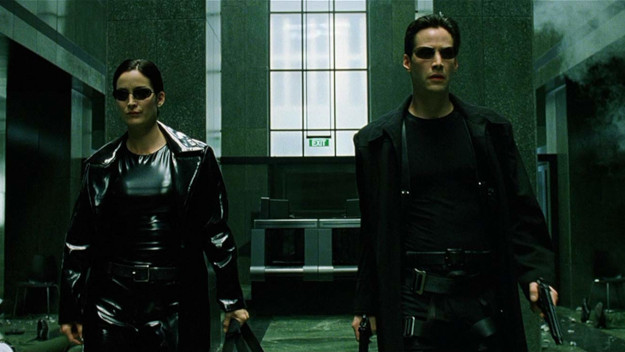
At this point in the story, we should have gotten multiple signals that these two are in love. We didn’t get a single one.
Most of the time, action movies try to balance character development, story, and worldbuilding so that everything makes sense. In most cases, it works rather well. However, the Wachowskis seem to have overlooked one of the most critical aspects of the story: the romance of Neo (Keanu Reeves) and Trinity (Carrie Anne Moss).
For lack of a better word, it’s nonexistent.
I know that this trilogy focuses on philosophical concepts like the brain in the vat, but the Wachowskis didn’t even bother to develop this relationship in a way that makes sense. Sure, Trinity observes Neo and brings him food when he wakes up, but their connection seems to be business-related until the script decides that they’re in love.
I have no idea why the writers completely discarded this storyline in favor of the Morpheus’ (Laurence Fishburne) mentorship of Neo. If anything, they could have split some of Neo’s training sequences between Trinity and Morpheus to better illustrate the trio. This alteration might change some of the most iconic moments of the movie, but it would have made sense to, say, give Trinity the dojo fight scene and the jump program. It would have changed next to nothing, and they could have flirted a little bit while they sparred!
Some Major Story Beats Lack Tension.
The story of The Matrix suffers on a macro level because of one critical plot thread.
Near the end of the movie, Agent Smith (Hugo Weaving) and his goons capture Morpheus. They want to torture him so that they can retrieve the access codes to the Zion mainframe, get into the city, and eliminate all of the free humans. Under certain circumstances, this outline would be an okay way to show off the stakes of the movie. We know who is in trouble, what our heroes need to do, and what the consequences will be, but there’s just one problem.
Why wouldn’t Zion’s commanders just change the access codes?
I just sucked all of the tension out of the movie, didn’t I?
In the latter half of the 1990s, most computer users could easily create and change passwords on a whim. Did we suddenly forget about how to do that in the 700 years since that time? If so, why? That seems like an enormous security flaw!
Never mind the fact that the sequels utterly destroy this plot point. We’ll get to that in the next article.
The Philosophy Is Awkward.
On the deeper side of things, The Matrix tries to illustrate an interesting philosophical concept, but it fails to explain the why behind it and how it affects the story.
On the surface level, the film uses the brain in the vat scenario to set up the machine-dominated dystopia and the superhuman powers of the resistance. If we dive deeper, it’s easy to see that this concept is used to set up questions about the nature of reality, yet it awkwardly illustrates a problem with the nature of the One and the difference between thinking and knowing. The red-pilled know beyond a shadow of a doubt that they are inside of a computer-generated illusion, so why can’t they replicate many of Neo’s powers?
Think about it for a moment. The entire point of the red pill vs. blue pill dichotomy is to center the Matrix around a system of rules. If you’re plugged into the power plant, you can be taken over by an agent and have no real access to special powers. Red pills do not have this problem because they know that they’re actually sitting in a chair on a hovership somewhere, so they are able to free themselves from the rules that would hold other humans down.
With that in mind, why would they even need to worry about Agent Smith? Sure, they probably can’t fly into him like Neo can, but why couldn’t they be as strong or as fast as his men?
By the way, the sequels destroy this story point as well. Let’s just throw that out there for good measure.
Conclusion.
The Matrix can certainly be praised for its groundbreaking special effects, but that’s about it. The story is undermined by obvious flaws, the philosophy is confusing, and seemingly critical plot threads are thrown in at the last second for reasons. While there is not much else like it, anyone who hasn’t seen it will probably forget about it a little while after the fact.
Still, this movie is not as bad as its sequels. Not by a long shot.
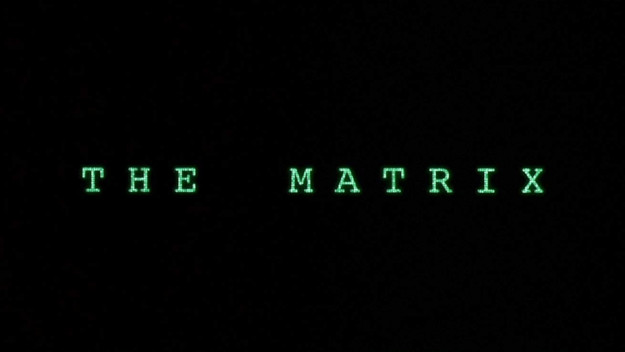
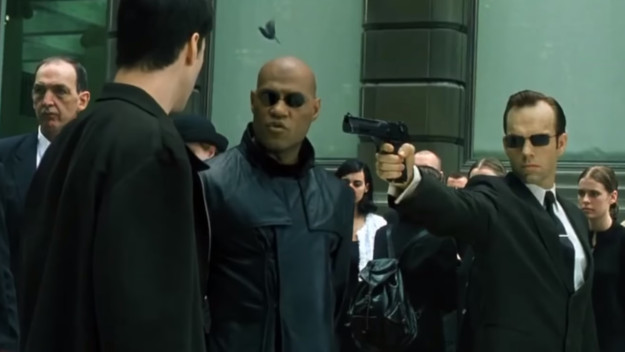
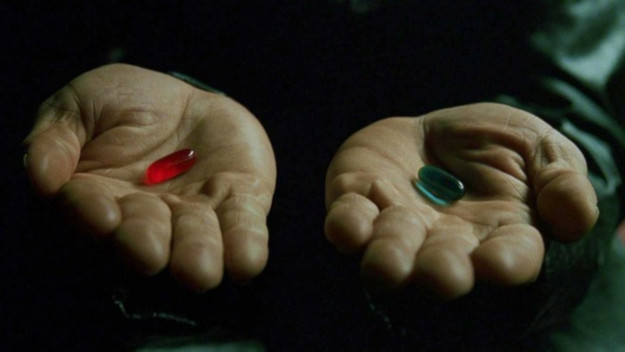
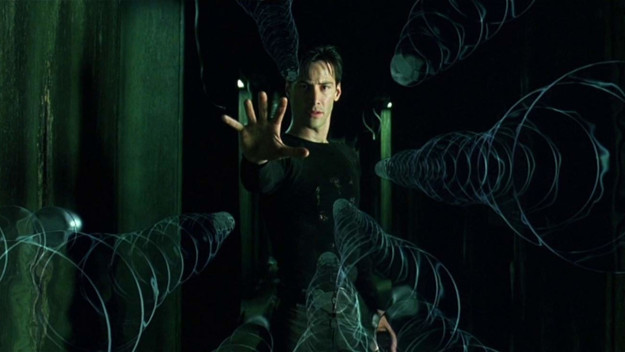
No Comments Yet